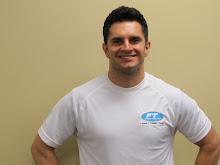People suffering from anxiety can find some relief through regular exercise, University of Georgia researchers report.
Anxiety frequently accompanies chronic illnesses such as diabetes and heart disease, and the constant strain can interfere with treatment for those conditions, the researchers say. “While we might expect symptoms of anxiety to be elevated among individuals coping with a chronic medical condition, symptoms may be unrecognized or untreated,” said Matthew Herring, a doctoral student in the department of kinesiology and the study’s lead author.
Though the role of exercise in alleviating depression symptoms has been well-studied, the impact on anxiety symptoms has received comparatively little attention. “The findings of our review add to the growing body of evidence that physical activities such as walking or weight lifting may be low-cost, effective treatments to help alleviate anxiety symptoms among patients,” Herring said.
For the study, published Feb. 22 in the Archives of Internal Medicine, Herring’s team reviewed 40 trials that included 2,914 people with various medical conditions, including heart disease, multiple sclerosis, cancer and chronic pain from arthritis. In 90 percent of the studies, people assigned an exercise program had fewer symptoms of anxiety — including feelings of worry, apprehension and nervousness — than did those not assigned to exercise, the researchers found.
In fact, regular exercise was shown to reduce anxiety symptoms by 20 percent. “Even though the majority of these patient groups did not have extremely elevated anxiety symptom scores at the beginning of exercise training, anxiety symptoms were still reduced,” Herring said.
Exercising for 30 minutes was more effective in reducing anxiety than shorter periods of exercise, the study found. However, exercise programs that lasted three to 12 weeks were more effective than programs that ran more than 12 weeks, the researchers noted.
“Results showed that patients were more likely to adhere to, or stick with, shorter duration exercise programs, which might account for larger anxiety reductions compared to longer program durations,” Herring said. “Stated another way, better participation rates likely will result in greater anxiety reductions.”
Tracie Rogers, a sport and exercise psychologist and spokeswoman for the American Council on Exercise, said that regular physical activity doesn’t just make us feel better but has “measurable results in reducing anxiety.”
“Exercise not only influences your physical health for the better but also your mental health,” she said. And people already getting treatment for anxiety would still benefit from exercise, she said. “For people who are dealing with clinical anxiety who are in therapy or on anti-anxiety medication, it is extremely beneficial for them to be involved in an exercise program,” Rogers said. “It has real anxiety-reducing effects, just like those drugs do.” Unwanted side effects keep some people from taking anxiety medications, Rogers said. “Exercise is a real good alternative to that,” she said.
By Steven Reinberg. HealthDay Reporter. Copyright 2010.
Edited for Content by FT Lake Forest Staff.
Anxiety frequently accompanies chronic illnesses such as diabetes and heart disease, and the constant strain can interfere with treatment for those conditions, the researchers say. “While we might expect symptoms of anxiety to be elevated among individuals coping with a chronic medical condition, symptoms may be unrecognized or untreated,” said Matthew Herring, a doctoral student in the department of kinesiology and the study’s lead author.
Though the role of exercise in alleviating depression symptoms has been well-studied, the impact on anxiety symptoms has received comparatively little attention. “The findings of our review add to the growing body of evidence that physical activities such as walking or weight lifting may be low-cost, effective treatments to help alleviate anxiety symptoms among patients,” Herring said.
For the study, published Feb. 22 in the Archives of Internal Medicine, Herring’s team reviewed 40 trials that included 2,914 people with various medical conditions, including heart disease, multiple sclerosis, cancer and chronic pain from arthritis. In 90 percent of the studies, people assigned an exercise program had fewer symptoms of anxiety — including feelings of worry, apprehension and nervousness — than did those not assigned to exercise, the researchers found.
In fact, regular exercise was shown to reduce anxiety symptoms by 20 percent. “Even though the majority of these patient groups did not have extremely elevated anxiety symptom scores at the beginning of exercise training, anxiety symptoms were still reduced,” Herring said.
Exercising for 30 minutes was more effective in reducing anxiety than shorter periods of exercise, the study found. However, exercise programs that lasted three to 12 weeks were more effective than programs that ran more than 12 weeks, the researchers noted.
“Results showed that patients were more likely to adhere to, or stick with, shorter duration exercise programs, which might account for larger anxiety reductions compared to longer program durations,” Herring said. “Stated another way, better participation rates likely will result in greater anxiety reductions.”
Tracie Rogers, a sport and exercise psychologist and spokeswoman for the American Council on Exercise, said that regular physical activity doesn’t just make us feel better but has “measurable results in reducing anxiety.”
“Exercise not only influences your physical health for the better but also your mental health,” she said. And people already getting treatment for anxiety would still benefit from exercise, she said. “For people who are dealing with clinical anxiety who are in therapy or on anti-anxiety medication, it is extremely beneficial for them to be involved in an exercise program,” Rogers said. “It has real anxiety-reducing effects, just like those drugs do.” Unwanted side effects keep some people from taking anxiety medications, Rogers said. “Exercise is a real good alternative to that,” she said.
By Steven Reinberg. HealthDay Reporter. Copyright 2010.
Edited for Content by FT Lake Forest Staff.









No comments:
Post a Comment